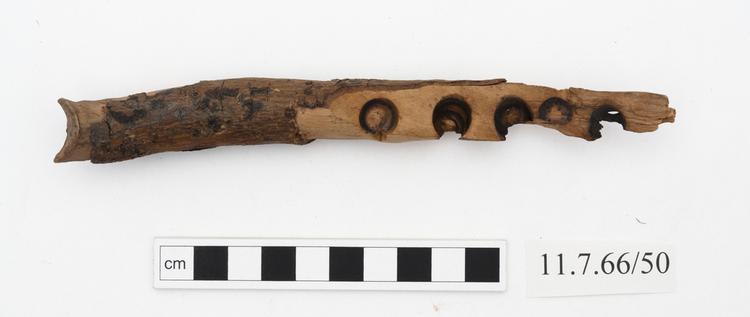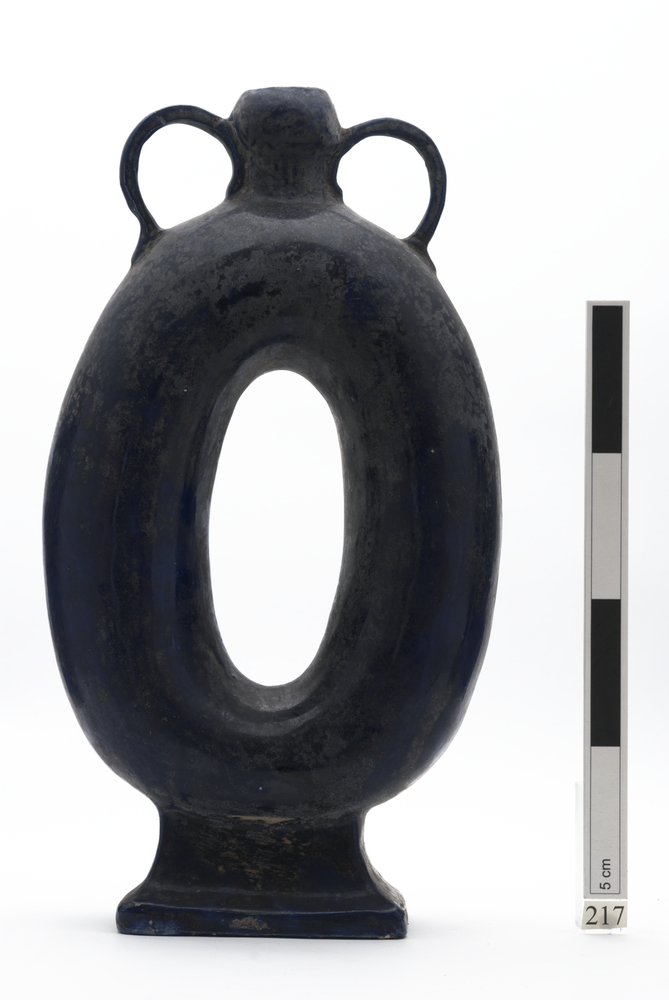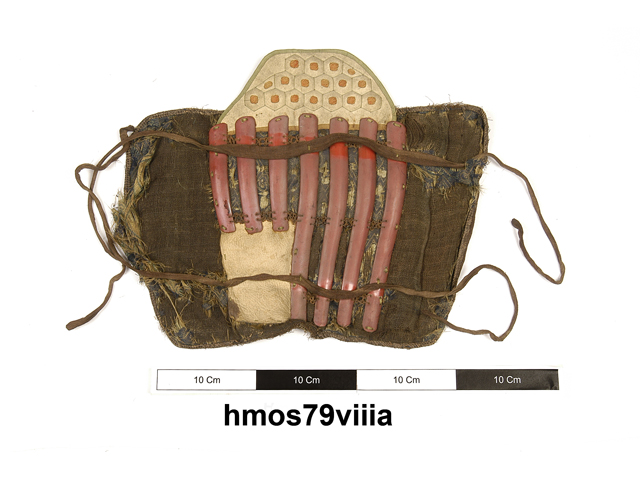
One of a collection of seals made of cornelian, glass and brass, finely engraved in Arabic script. Some of the brass ones are backed with bitumen, indicating the method by which they were held in the mountings. Since these mounts were often precious, they have probably been removed for melting down. "These seals were ... frequently used by merchants and when a deal was consummated each party handed over his seal to the other who after wetting the document to be sealed with his wet thumb, pressed the seal upon the ink-pad and then reproduced it on the moistened document.' Seals are of various shapes: square, round, oval and triangular. From 0.4" x 0.45" to 0.9 x 0.6".
Seal to be mounted on a ring, Iran. Major R. Jackson who donated this ring seal to the Horinam Museum gives the following account of how it would have been used: “ [Such seals were used] frequently by merchants and when a deal was consummated each party handed over his seal to the other who, after wetting the document to be sealed with his licked thumb, pressed the seal upon an ink pad and then reproduced it on the moistened document!” However, this seal served more than just an economic purpose. As with many Islamic rings our seal is amuletic, naming the owner and beseeching God’s help in his favour. The inscription reads: "Abdho Baba Khan", or " [God's] servant Baba Khan [name]". Nineteenth or twentieth century. Brass. Formerly in the collection of Major R. Jackson. Donated to the Horniman Museum in 1966.






